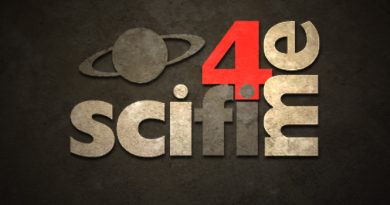THE ZERO THEOREM: The Theory of Nothing

Watching a Terry Gilliam film reminds me when I took calculus in high school. I didn’t have a clue what I was doing, but I did it very well.
[youtube http://www.youtube.com/watch?v=RyMSRRNHRos&w=640&h=360]
This math comparison is even more appropriate with his latest venture, The Zero Theorem. Filled with math and computer references galore, the plot – like many a Gilliam film – is complex and hard to distill easily. We are introduced to Qohen Leth (Christoph Waltz in a mesmerizing performance), a computer programmer who is unnerved by everything: people, the outside world, his workplace, etc.
Of course, once we venture outside and to his work, you can almost understand his fear. In typical Gilliam style, the world of TZT is a dystopian steampunk-style world of horror. Advertisements are everywhere, blaring so loud you can’t hear anything else, with the ability to follow you down the road so as to confirm you heard their message. Everyone is disconnected, focused even more on the electronics in their hands and ears than ever before, with Leth actively avoiding what little contact even that offers. His conversations with his supervisor Joby (David Thewlis) only add to it, as Joby continually mispronounces his name. Everything is bright and garish and painful to endure.
Leth wants to work for home, as he is anxious about missing a literal call to adventure, and after speaking with Management (Matt Damon) gets put on the project to solve the Zero Theorem. The goal? To prove that everything equals nothing, and that nothing has meaning. “Chaos pays,” Management explains near the end. In the process, Leth is searching for his own meaning of life. There’s a side trip into cyberspace (requisite Matrix joke included) and the inevitable exploration of sex with Bainsley (Mélanie Thierry).
Like my attempt at calculus, The Zero Theorem didn’t always make sense to me, but that doesn’t mean I didn’t think it was brilliant or that I didn’t find it fascinating. Of course, that’s pretty standard for a Gilliam film, and part of why I’m such a fan of the director. His films inevitably make you think, and almost demand that you watch it multiple times to figure out what the heck you just watched. His movies are multilayered and filled with symbolism, and I can’t help but wonder if he throws in some things just to mess with people.
We are all individuals … just like everyone else. We all have a need to be special, and we all need to be needed. Can the search for meaning consume you so much that you forget to live? “Life happens to everybody,” says one of the characters. Whether Leth finds meaning or not is left up to the audience to determine. And truly, isn’t that the real metaphor here?
The Zero Theorem is available on DVD, Blu-Ray, and in demand media such as iTunes and Amazon Instant.
You can see more of Angie’s writing on geek media at her website.
![]()



